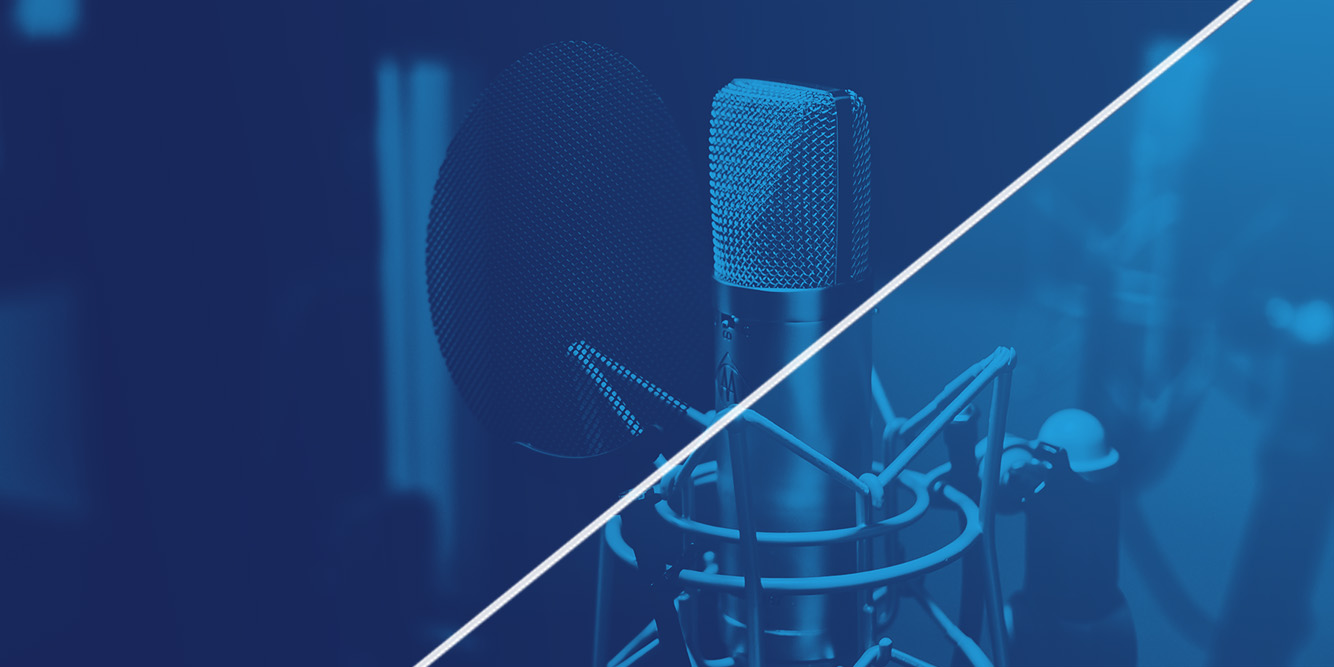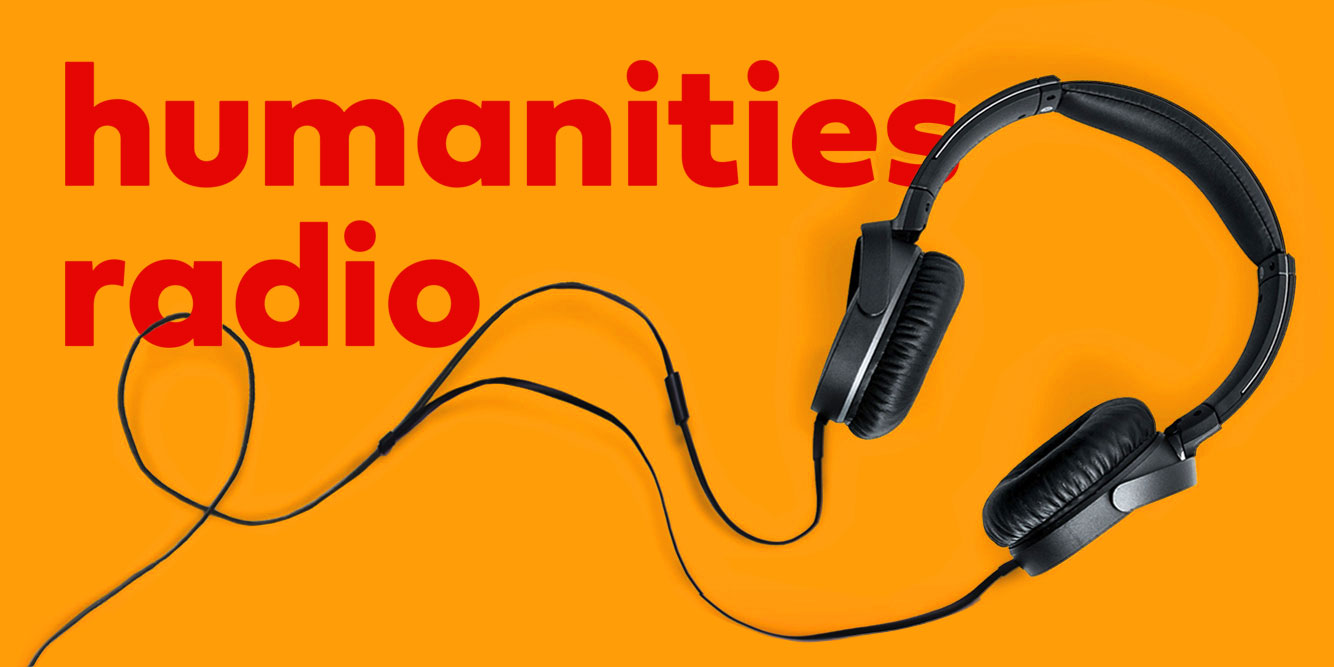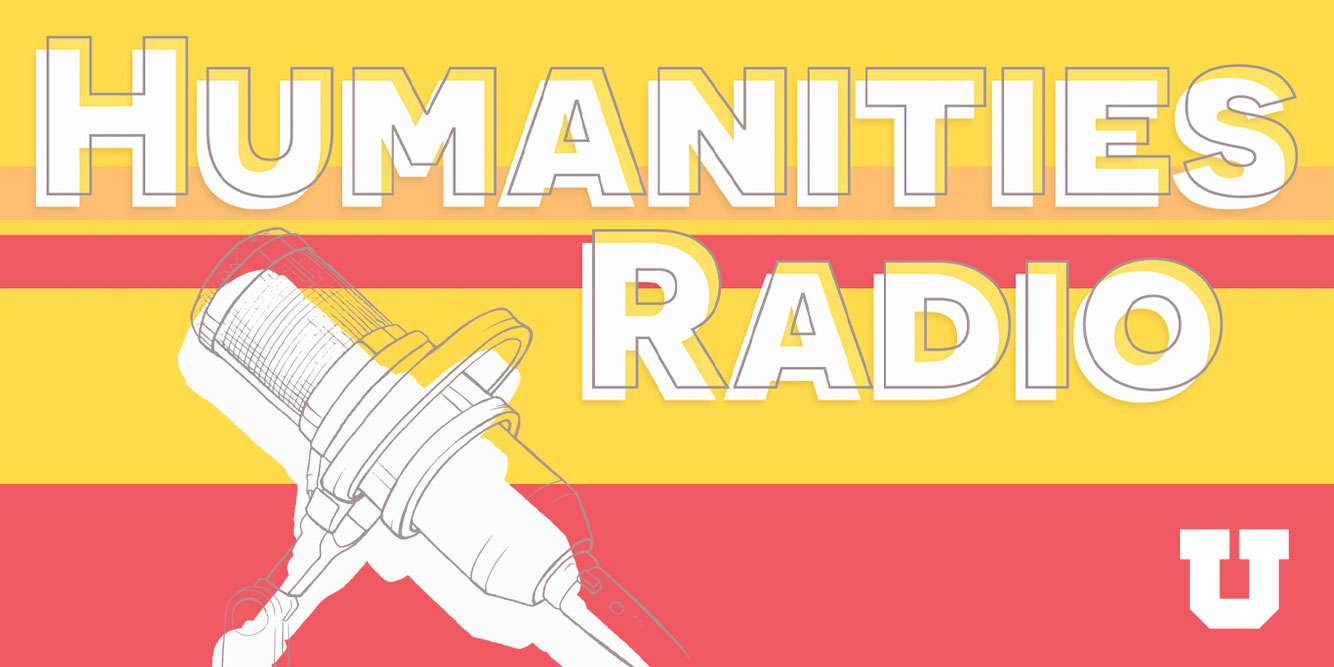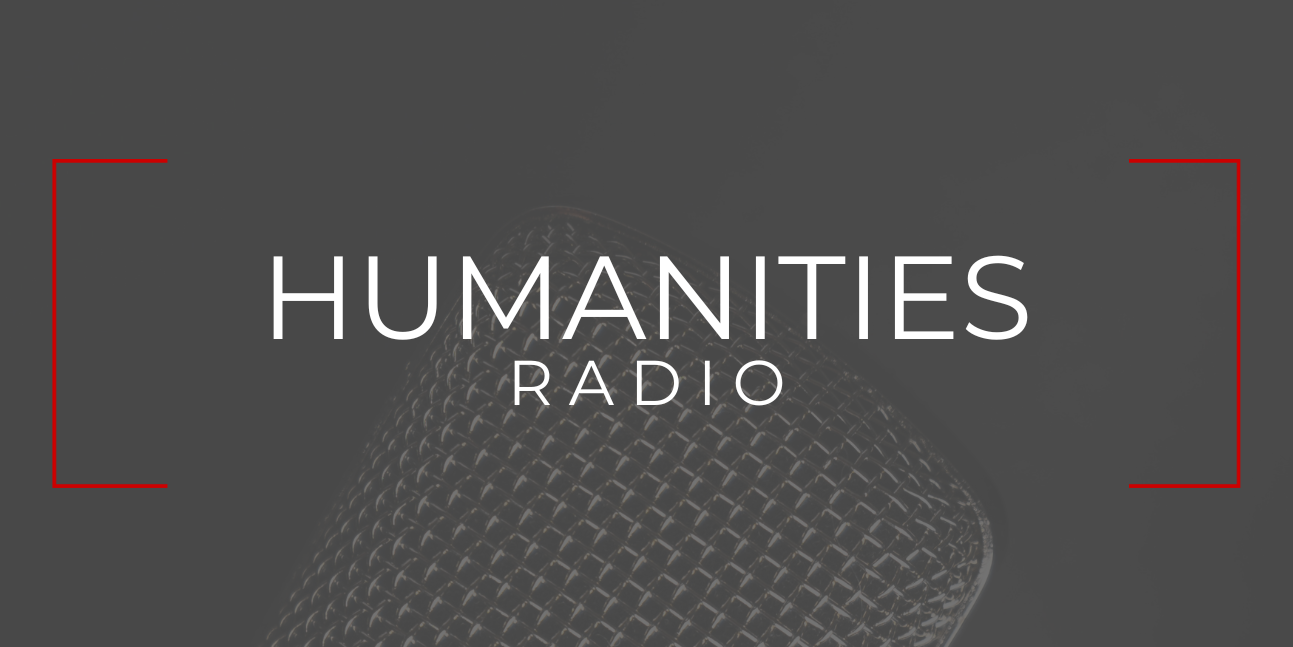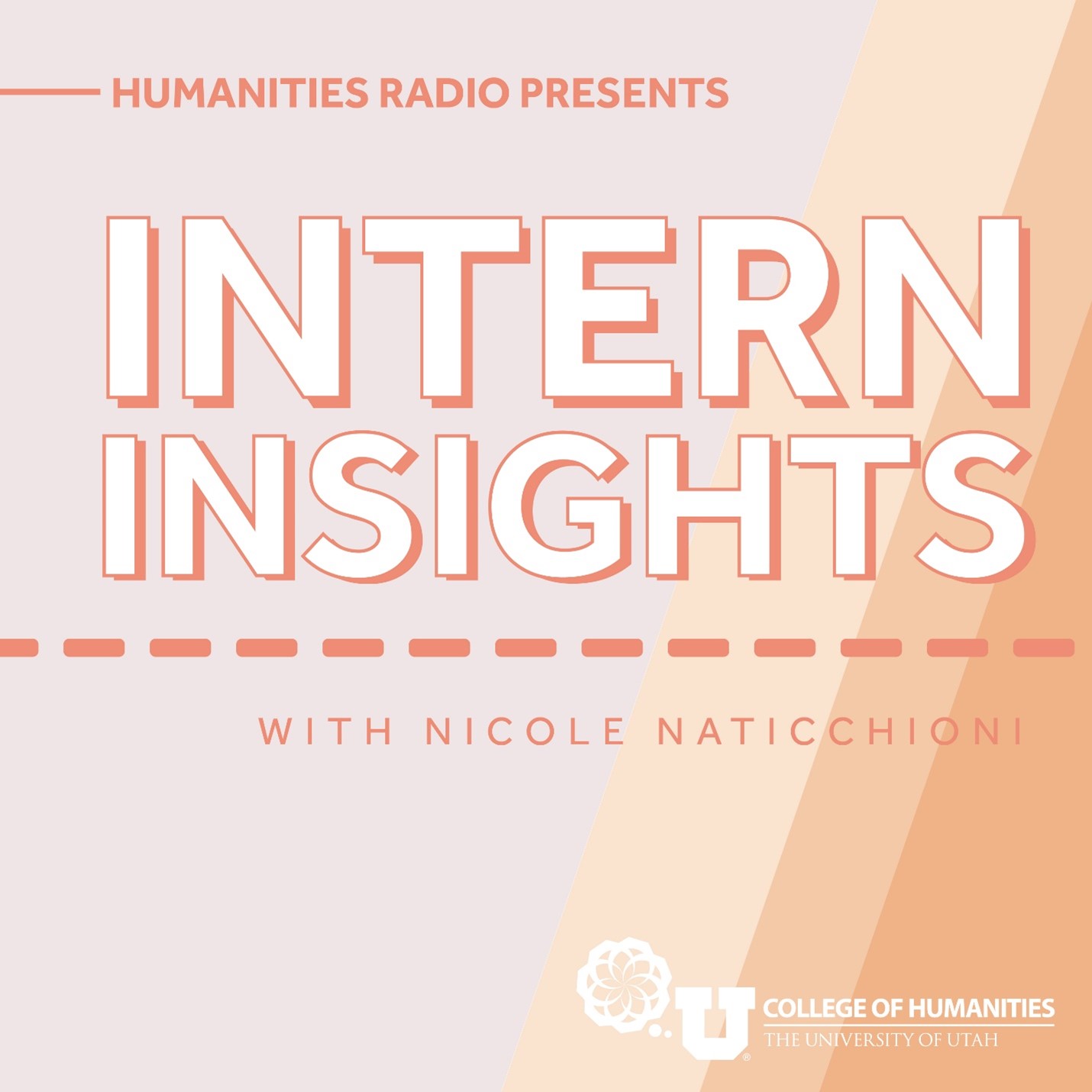
Welcome to Humanities Radio
Humanities Radio is the University of Utah College of Humanities' Podcast. Our goal is to lead conversations about the humanities in the 21st century.
We will talk with faculty, students and alumni to share information and ideas about the importance of the humanities in today's world. Listen to our latest and past episodes below!
Latest Episode
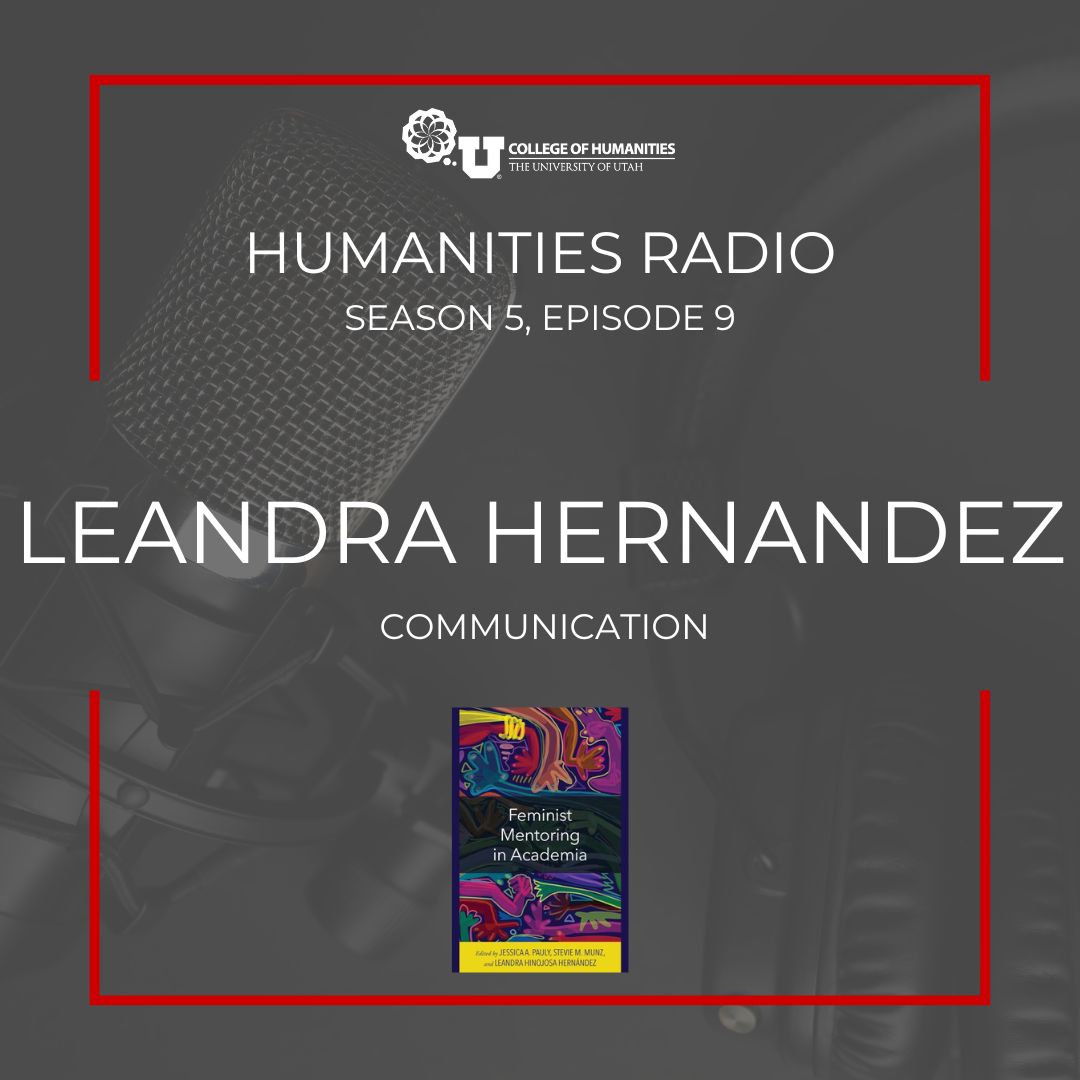
Episode 9: Feminist Mentoring in Academia
Leandra Hernandez, assistant professor of communication, discusses her book, “Feminist Mentoring in Academia (Communicating Gender)” which explores how feminist mentoring happens between professor and student; junior faculty and tenured; and occurs repeatedly.
Leandra Hernandez:
I hope readers, if they don't know what feminist mentorship is, will see the complexities and the multilayered nature of not only how feminism is defined, but how it's experienced in mentorship context.
Jana Cunningham:
Hello. Thank you for joining me on Humanities Radio. I'm Jana Cunningham with the University of Utah College of Humanities, and this season I'm in discussion with professors from across our college about their latest book publications. I'm sitting here with Leandra Hernandez, Assistant Professor of Communication, about her book, Feminist Mentoring in Academia, which contains a collection of personal accounts of support, struggle, and resilience in higher education.
Welcome, Professor Hernandez.
Leandra Hernandez:
Thank you so much.
Jana Cunningham:
Before I launch into some questions, I would love to just get your take about what this book explores and what motivated you to explore the topic.
Leandra Hernandez:
The book looks at feminist mentorship in higher education, broadly defined. If you look at what mentorship is, you'll get all kinds of definitions of lateral, horizontal, vertical, women of color, mentorship, and so on and so forth, but for us, and with my co-editors, doctors Jessica Pauly and Stevie Munz, the book was, of course, a collection of analysis of different mentorship accounts from women in the communication discipline in higher education. But as qualitative feminist scholars, we three like to talk about how it was a love letter to ourselves that helped us get through some struggles we had in past years.
Jana Cunningham:
And then the first question I am interested in asking you about is that there are a lot of definitions of feminism and a lot of people take it a different way. And so I'd love to understand what your definition of feminism is.
Leandra Hernandez:
Yes, that is so true. First wave, second wave, third wave, and on and on and on. For me, as a Mexican American woman, I tend to gravitate towards Chicana feminist definitions or the larger Chicana feminist area, which looks at a very broad and base level, lest I oversimplify it, really breaking down issues of racism and sexism for Chicanas. But really in addition to that, I also think about feminism through an intersectional lens, which draws upon Black feminist principles that help us think about breaking down systems of power and oppression through the analytic of the intersection of our identities, class, gender, nationality, race, so on and so forth. It's really thinking about our experience as not as single issue experiences, but thinking about all of the different parts that make us who we are.
Jana Cunningham:
At the beginning of the book you talk a lot about the Fire Squad. And so I would for you to walk me through what the Fire Squad is and how they shaped your views on mentorship, but also how they helped impact your career.
Leandra Hernandez:
In the book, as you mentioned, we talk about the Fire Squad. When I started at a previous institution as a tenure track faculty member, I was the only Latina on the tenure track in the department, and I was also the only openly out queer faculty member on the tenure track in the department. When I got there, there were four other women who were also assistant professors in our track, and we became very close very quickly. Some of them were on my hiring committee, so I got to know them before I got to the institution. I was in frequent contact with them over the summer as I moved here to Utah. And then when we got a few weeks into my very first semester, we discovered that there were a few struggles, a few inequities that we were all facing collectively.
I don't want to say it was trauma bonding because I know there are a lot of debates out there about that, but all five of us really had to band together very closely, very quickly to address some of the inequities that we were facing collectively. We are all still very close to this day, even though two out of the five of us are now at different institutions or different stages and phases in our lives. But the mentorship there was informed by so many different views on equality, on friendship, on feminist social support, and feminist anger, especially in terms of being really angry at the gendered level of the inequity, but also being mindful of feminist joy and mentorship that comes from building really strong relationships on feminist principles and seeing how the friendships and the solidarity and the collective can really change your everyday experiences.
Jana Cunningham:
And so outside of the Fire Squad or maybe with the Fire Squad, what are some of the feminist mentorship practices that you have been part of, and how did they impact your life, your career?
Leandra Hernandez:
Yeah, so I think about it at micro and macro levels. At macro levels, especially in the wake of COVID and the murder of George Floyd and a lot of our other sociocultural moments that we're seeing now, we see the book clubs, we see the mentorship groups, we see the writing groups, and even just dinner outings, all different moments of support that come together to help inform what a feminist mentorship practice might look like. And some of those structural level factors work really well. But then when I think about the micro level practices, it's also utilizing your privilege in faculty meetings or in national organization meetings to speak up on behalf of others who maybe don't feel like they are comfortable speaking up. Maybe they don't tenure yet, or maybe they are multiply marginalized or minoritized and are fearing retribution if something happens. So it's using the power and the privilege of having tenure or maybe being in a certain level in your life that someone else isn't to say, "I can speak up and make a difference now in ways that maybe my close colleagues aren't able to."
If we go back to the Fire Squad, I was the youngest in the group in terms of being most recently on the tenure track. And then when you intersect that with the different identities that I was the only woman of color and the only queer one in the group, a lot of my colleagues stepped up in really powerful ways, I think, when I was too worried about being pre-tenure to be mindful of what was happening. And those are just, again, some of the micro level practices of how mentors at a similar level or also higher levels can step up and come through.
Jana Cunningham:
Do you think the micro is just as important as the macro or vice versa, or do you think they should be used in combination?
Leandra Hernandez:
Great question. Yeah, I think they should be using combination because they're both really important, especially if there are feminist mentorship structures that we are not allowed to create by ourselves for ourselves that sometimes come from the top down. Even with the best of intentions, but maybe not the best outcomes, the micro level practices can also be where the magic happens.
Jana Cunningham:
Okay. What are some of the ongoing discussions happening in higher education regarding feminist mentorship?
Leandra Hernandez:
Oh, great question. So first and foremost, it's struggles that we're seeing between faculty members and staff members and the institution in terms of thinking about resources that are available for mentorship structures, what's the best way to go about creating them, what sorts of models should we use? But then it's also thinking about how mentorship is even categorized if we take a few steps back. Even in Utah, there are current conversations about diversity, equity, and inclusion in higher education, spaces of belonging, DEI statements and things of that nature, and oftentimes if it's, say, a woman of color mentorship group, that can get categorized in the DEI practice category, depending on how you define it or where you place it in the academic totem pole. And then given current conversations, now faculty members and staff members and administrators are trying to figure out, where do we put the mentorship groups? Who runs them? Is it best to have a faculty fellow or an administrator or a staff? How do we figure out budget so that if state legislature budget cuts or restructuring is passed that the program doesn't get cut itself?
And then also it's thinking about how best to support faculty members and staff members in these mentorship programs. Sometimes they're book clubs or luncheons, which are wonderful, but sometimes faculty and staff need more than just that to really feel like being mentored. So it's logistical, it's definitional, it's occupational, and so much more.
Jana Cunningham:
So what are some of the ways that faculty are engaging in mentorship practices, and not just necessarily here at the U, but some of the practices either you've explored in your book or that you've seen be really successful in higher education?
Leandra Hernandez:
Yeah, great question. One example just off the top of my head that I can give you is a mentorship program that I helped co-found in the mid-2000s, so like 2015, 2016. It's the National Communication Association La Raza Caucus Mentorship Program. There are four of us on the coordinating board for the mentorship program, which started as a few idea sessions. We're trying to figure out how we can best help members of our division and caucus feel connected, feel supported at all levels of the academic experience. And it went from a few sessions to a formal meeting to now a program where folks are connected both at our national convention and then outside.
We are also very intentional about connecting faculty members all the way from undergrad... or not faculty members, but individuals from the undergraduate level all the way to the senior scholar level, and then connecting folks where they need mentorship, whether it be teaching, research, service, community organizing and activism. It's been running strong for the last several years. We also have a budget through our national organization to help sustain it, which is really important through the organization recognizing that it's important and that we need it.
And then also, even outside of some of the more traditional models we might see with a book club or a luncheon set up, even faculty members here at the U do such a wonderful job of informal mentorship, whether it's welcoming new faculty members in the department, offering to take them out for lunch or tea or coffee, offering to read drafts of manuscripts before submission, offering to bring folks in to research areas or research labs, or even if you just say, "Hey, I need a break from academia for a night," going to the gym together or just going out to eat.
And going back to your question about the micro and the macro practices, I think you can see there how you really need all of it to feel like you're part of the community.
Jana Cunningham:
So when a new faculty member arrives at their institution of higher education, is it really just up to them to seek out those mentorship opportunities, or are they automatically in place? How does that work?
Leandra Hernandez:
Great question. The research on that is really fascinating too, because it comes down to whether or not systemic practices are in place to support new faculty members and what the new faculty members preferences are, and trying to find some sort of connection or synergy there. As a new faculty member myself, I am all about community gatherings and making friends and having meetings, so having a structure in place like that for me worked really, really well. But then the question becomes, how can institutions or universities really do a good job meeting new faculty members or even staff members where they're at if that is not their jam, if it's a little too overwhelming or if it's not the best?
Because I remember when I first got here to the U, I was notified of college level and university level mentorship programs, which was wonderful, because the university level one focuses on a variety of different aspects of your academic identity, and then you get to meet other faculty members and go to lunch with them. And then the college level one includes some other sorts of opportunities for you to meet with faculty members in research and social settings. I know a few other faculty members who are like, "That is a lot." So they take a little bit from here and there and maybe make connections a little more informally. But the good news is, at least in my past experiences, there were always at least one or two programs in place, whether at the department level or the university level, to help folks feel part of the community.
Jana Cunningham:
Does it just organically happen where you take part in these mentorship programs and then you become the mentor? Is that an organic process or is it just a given that you eventually become a mentor?
Leandra Hernandez:
That's a great question. It depends on so many factors too, like personality, whether or not you jive with the other person and what the strengths and... I hate the word offerings because I can't think of a better word, but something along those lines, because that really comes down to the question of horizontal or lateral or vertical mentorship, top down versus more equal based. But I think if you talk to different faculty members, just even in our department, they would tell you how they mentor some and are mentored by others even regardless of tenure status or publications or any of those things, because it's really about how the relationships play out and being able to identify like, "I feel comfortable with this person. I feel supported by this person. Here are ways that we can mutually work with each other."
Jana Cunningham:
In your book, what are some of the struggles you discuss and explore through these different perspectives about mentorship?
Leandra Hernandez:
One of the hard things is reconciling being assigned to a mentorship program that doesn't work for you. Some of the scholars in our book talked a little bit about that and how they took matters into their own hands and found mentorship structures that worked for them that evolved more organically. Other questions come up about funding. So one of the struggles is, what happens when you have a really wonderful institutionally-supported mentorship program, and then funding is no longer available? So how can the center or the department or even the individuals facilitating it keep it going if they don't have the resources available or even perhaps the recognition for tenure portfolios?
And then another one of the struggles is how to break up with your mentor or your mentee when it's not working anymore and trying to figure out some of the communicative dynamics that exist when conflict arises.
Jana Cunningham:
Wow. What do you hope readers will gain after reading your book?
Leandra Hernandez:
Yeah, so I hope readers, if they don't know what feminist mentorship is, will see the complexities and the multilayered nature of not only how feminism is defined, but how it's experienced in mentorship context. For individuals who are hoping to create formal or informal mentorship programs, we hope that they'll see different examples that have worked in the past, maybe some models or programs that could be of use. If individuals have maybe struggled with finding a mentor or something along those lines, they are not alone. If nothing else, our book has wonderful personal accounts and also research stories from women in the communication discipline who have lots of insights to share about some of the complexities as well.
Jana Cunningham:
My very last question that I ask everyone on the podcast is, what does the world know now, or the community, the country, know now because of your research that they didn't know before?
Leandra Hernandez:
I think it helps humanize the academic experience by removing the curtain from one of the parts of our lives that we don't always talk about. We always talk about our research and our impacts and those more formalized parts of our experiences that also line up with our teaching and our service, but we are whole beings who also do research on our teaching experiences and our mentorship woes and our wins. And yeah, if nothing else, I hope it goes to show how diversity, equity, inclusion, and also feminist theory can be used in academic context that impact our lives both inside and outside of academia.
Jana Cunningham:
Perfect. Thank you, Professor Hernandez, for answering these questions for me today. Appreciate it.
Leandra Hernandez:
Yeah, thank you so much. This was great.
Jana Cunningham:
That was Leandra Hernandez, Assistant Professor of Communication. For more information about the University of Utah College of Humanities, please visit humanities.utah.edu. And don't forget to subscribe to Humanities Radio.
Humanities Radio Presents: Intern Insights
College of Humanities marketing intern, Nicole Naticchioni, takes over Humanities Radio to explore career advice, the value of a humanities degree, new courses in the humanities, and internships.
Humanities Radio Presents: COMM 3540
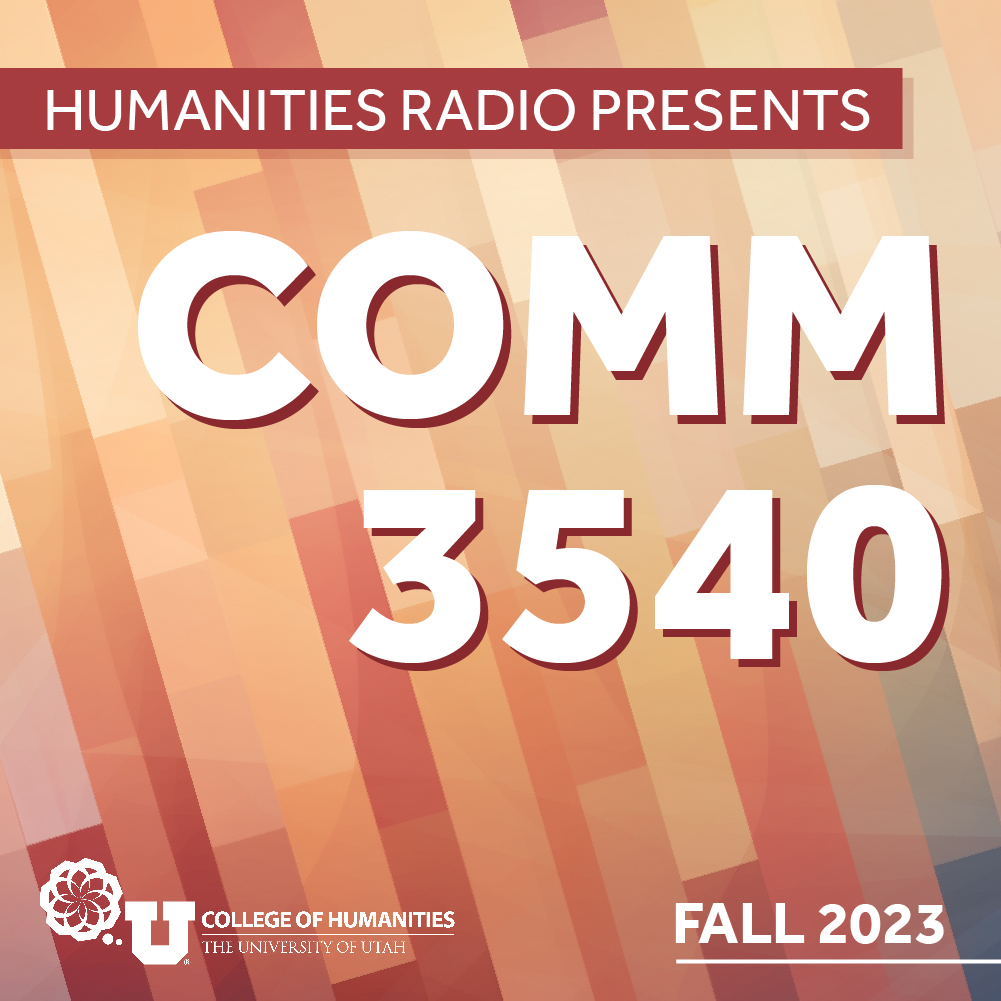
Comm 3540 explores radio journalism and exposes students to news writing, reporting, covering a beat, interviewing sources and producing news for broadcast. These episodes are a collection of students’ final projects covering topics such as the beauty industry, college athletics, influencers and why we love the things that we love!
SPRING 2021 Episodes SPRING 2022 Episodes Spring 2023 Episodes
Humanities Radio Presents: COMM 4670
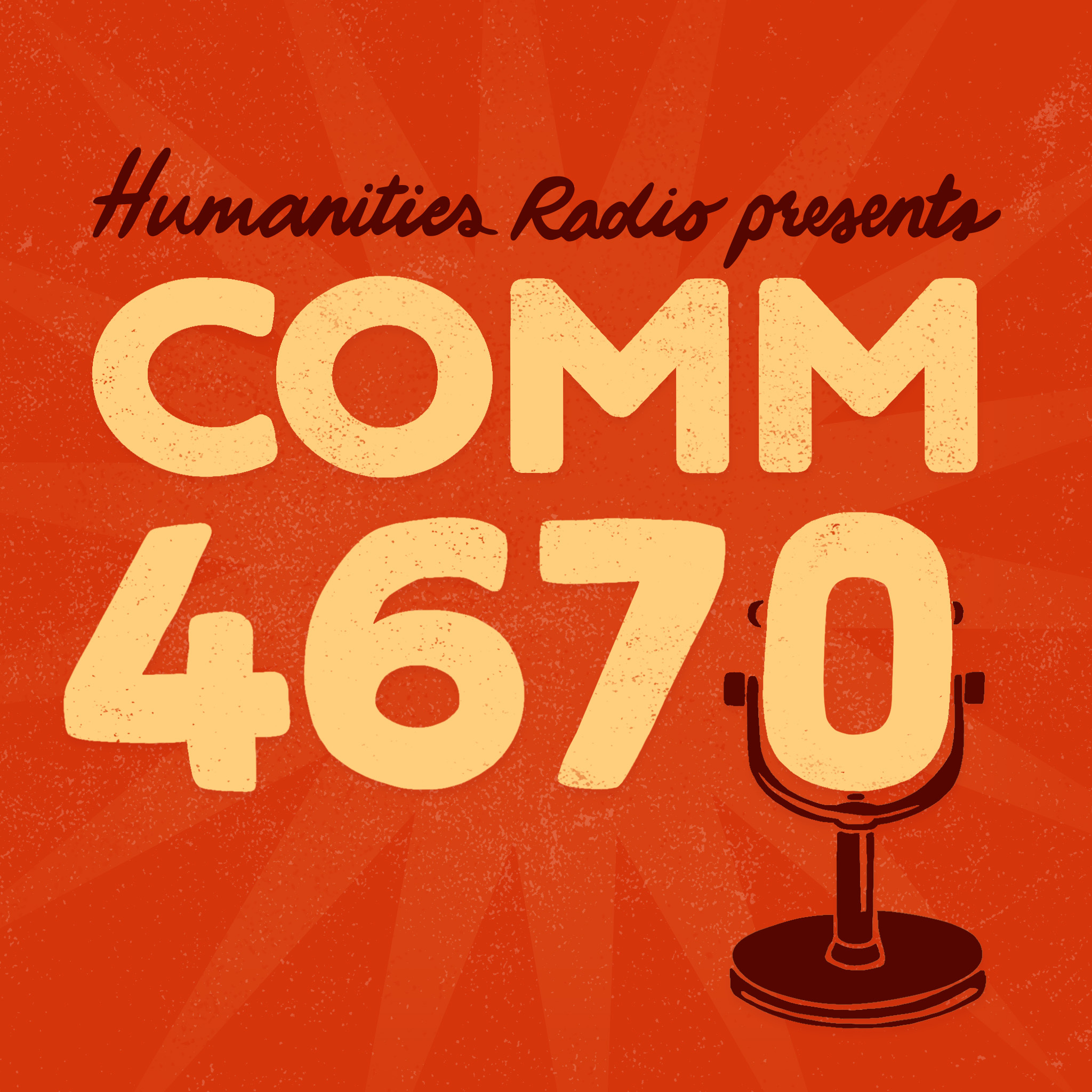
Comm 4670 exposes students to the business of podcasting. Students analyze podcast story structure and learn how to pitch and collaborate on audio stories. They learn research and interview techniques, script writing, recording and editing of audio content.




